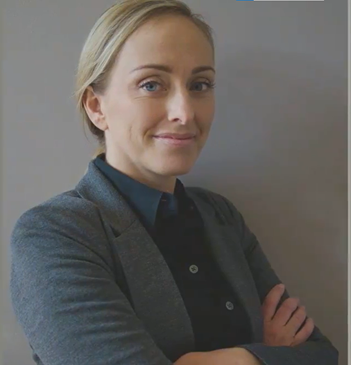You are currently on the:
CMHA NationalVisit our provincial websites
Faces of CMHA WW: Julia Read, Practice Lead, Self Help & Peer Support
Oct 30, 2020

I consider myself to be a support for peer supporters. I do this by providing coaching, mentoring, training, and support to both internal peer staff and peer staff from external agencies. I have many proud moments of my time at CMHA … a recent proud moment was when my team nominated me for the ‘Pay it Forward’ OPDI Lighthouse Award. I was very humbled and honoured to celebrate my work with my amazing team and other peer workers across the province.
1. What is involved in your role?
My role is the Practice Lead for Self Help and Peer Support. I promote the value of Peer Support Services throughout mental health and substance use services at CMHA WW, as well as other agencies across our community. I provide a range of services to peer support workers so that they can deliver high quality peer support services. My role also involves facilitating the peer worker community of practice, which recently received funding and enabled me to open up the meeting to all peer workers in the WW area. I also develop resources and deliver training related to best practices in peer support. My responsibilities also involve providing expertise and education in peer support practices to peer staff and local mental health and addiction agencies who employ peer staff who are connected to the Centre for Excellence in Peer Support. I am often asked to be on hiring committees when agencies are recruiting new peer staff, and am also often contacted when managers of peer workers have questions about best practices in peer support. To sum it all up, I am everything peer support!
2. What brought you to CMHA?
In 2016, while working on my PhD, I was involved in a peer-led research project for the Centre for Excellence in Peer Support. Visit the Self Help & Peer Support website if you are interested in learning more about this amazing 100% peer-directed and peer-led project! We collaboratively created a few community reports on the challenges of implementing peer roles on multidisciplinary teams. Shortly after this project ended, Keely Phillips, manager of Self Help & Peer Support, asked me to provide my expertise (my lived experience as well as my professional and academic experience) to provide support to peers who worked in substance use roles at a variety of local agencies. I have been involved with the Centre ever since as a contract worker. Recently I became a regular part time employee for Self Help and Peer Support and I absolutely love my job!
How do you support people at CMHA in your role?
I consider myself to be a support for peer supporters. I do this by providing coaching, mentoring, training, and support to both internal peer staff and peer staff from external agencies. Through the Centre of Excellence in Peer Support, peer staff from external agencies receive 1:1 support as well as ‘team supervision’. Instead of calling it ‘team supervision’, I call it ‘team collective’ because it is more inline with best practices of peer support.
4. What are you proud of during your time at CMHA?
I have many proud moments of my time at CMHA, I have had the opportunity to present at a few conferences, travel across Canada, and have met many other peer professionals from other agencies. A recent proud moment was when my team nominated me for the ‘Pay it Forward’ OPDI Lighthouse Award. I was very humbled and honoured to celebrate my work with my amazing team and other peer workers across the province.
5. What would you like people to know about Peer Support?
I will try to be succinct with my answer, seeing that I have a lot to say about peer support! There are three key points that I want you to remember when thinking about peer support:
- Relevant Lived Experience – a peer worker must have the relevant lived experience for their role. For example, the Peer 2 Peer at Cambridge Memorial Hospital must have experience with opioid drug poisoning.
- Intentionality – must share Lived Experience intentionally – because peer support is not the retelling of our recovery stories or the details of our past, we must listen to what the individual is saying and ask ourselves if we have any wisdom from our shared experience that we think that the individual supported might benefit from or may ask us about.
- Peer Support is a particular modality of support where the knowledge base is relevant lived experience.
If you are in crisis or wish to discuss whether CMHA has the right service for you, call Here 24/7: 1-844-437-3247 (HERE 247).
Learn more about mental health, read inspiring stories and news, find out about upcoming workshops and training sessions, sign up for our newsletter here.
Follow the ‘Faces of CMHA’ series for a glimpse into the lives of the people who spend each day at the Canadian Mental Health Association Waterloo Wellington working to inspire and support people to achieve the quality of life they desire.
Join our team! Click here to view current employment opportunities at CMHA WW.
